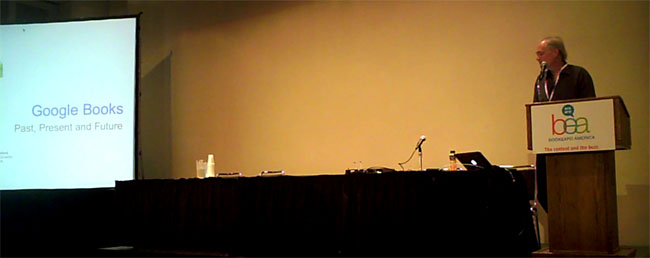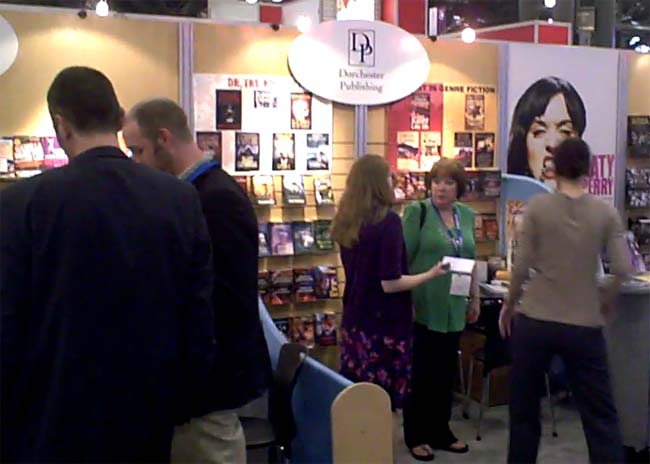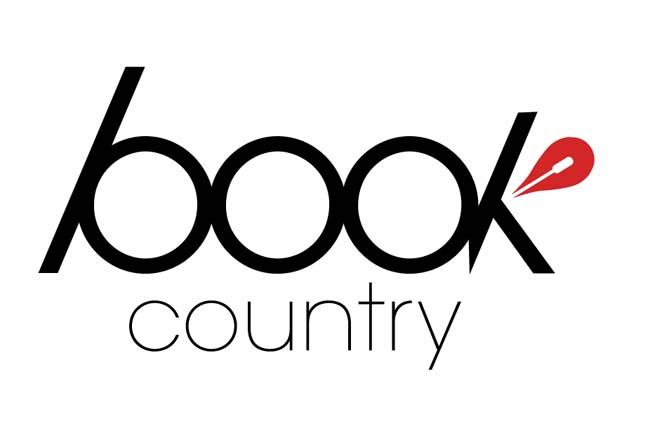Just hours before Amazon announced that it was gobbling up independent publisher Avalon, a Pulitzer Prize-winning author addressed booksellers on how they could help save the industry, reminding them why they mattered while he and his interlocutor Lynn Sheer referenced many New Yorker cartoons. Neither Richard Russo nor his audience had become a mundanely ironic punchline quite yet. But Russo knew that he wouldn’t be standing in front of the audience if independent booksellers hadn’t given his first novel, Mohawk, that essential admixture of faith and attention. Most in the room agreed that Amazon’s threat to independent bookstores was comparable to a bully, perhaps even more insidious than the paperback revolution that had made books affordable for the mass population.
The kernel for Russo’s ABA talk had come from an op-ed for The New York Times published last December. While Amazon had been good to him over the years, what pushed Russo over the edge was when Amazon encouraged its customers to go into a brick-and-mortar store and scan items with a price-check app. All Amazon shoppers had to do was scan a bar code and they would earn a 5% credit on Amazon purchases. “Is it just me,” wrote Russo, “or does it feel as if the Amazon brass decided to spend the holidays in the Caribbean and left in charge of the company a computer that’s fallen head over heels in love with its own algorithms?”
Now Russo, dressed in a black shirt, khaki pants, and a dark jacket, was before a crowd of booksellers who were loyal to him as an author and, perhaps more importantly, as a man who had their backs.
Russo’s talk went further than his op-ed piece, suggesting that Amazon was killing off what remained of humane business practice. “What really frosted me about all this,” said Russo, “was how cruel it was. They wanted to fill brick and mortar stores with people. So if you looked out, you’d see all those people out there. And you’d get the sense that commerce was taking place. The cruelty of it was so shocking, so stunning, so cold.”
It was an independent bookseller that had helped Russo garner his early reputation. “At Barbara’s Books, I remember they optimistically set up six or seven chairs,” said Russo of a vital appearance at a now defunct bookstore for Mohawk, which had then been released in a then daring paperback original format. “I got the sense that the employees at Barbara’s Books had read the book and they seemed to like it. Those people who filled those five to seven chairs, they were going to be hand selling that book. They were going to be hand selling that book and my next book and the next book after that. And as disappointed as I was, they weren’t disappointed at all strangely enough.”
This early crowd of adopters had more faith in Russo than he did. Russo pointed out that his daughter, Emily Russo Murtagh, had carried on in this proud tradition by writing a review of a Ron Rash book. Rash viewed this as one of the central tipping points of his career and has only just received his first New York Times Book Review. Russo insisted that there was a whole crop of young fiction writers worthy of recognition and wasn’t sure if a world with only Amazon would permit similar waves of face-to-face enthusiasm to help future generations of authors.
“There have been significant changes as a result of Amazon,” said Russo. “B&N is hanging by a thread. There’s nothing like Walden Bookstores. The Amazon threat is real.” Russo pointed out that Amazon has 75% roughly of the online market for both print and electronic books. “And if the Justice Department wins,” continued Russo, alluding to the recent ebook collusion suit, “Amazon will be able to go back to the practice they had before all this. And they will again be able to sell certain frontlist books for less than it costs them to buy. Because they know that they already have the backlist basically cornered.”
So how could the indie bookstore fight back against this threat? For the independent bookstores that have survived, Russo suggested that “what didn’t kill them made them stronger.” He compared indie bookstores to “curated shows” and suggested that the superstore days of yesteryear were done. “We’ve passed the point now where you’ll find everything.”
But while Russo remained opposed to the word “boutiquey” and wanted bookstores to thrive rather than merely survive, Russo had little more than instinct and accepted wisdom to uphold these views. While he copped to owning an iPad, he confessed that he didn’t really comprehend social networks (“You’re speaking to a dinosaur”) and that his love of physical books was perhaps generational (“The generations do react very differently”), noting that kids today are being trained to sit before a screen for twelve hours.
He didn’t understand why publishers simply accepted the manner in which online booksellers dictated the $9.99 price point when they offered the hardcover for $27. “Why would they have agreed to do that? It was like allowing Netflix to stream The Avengers on the weekend it comes out. Why would they have conceded the most important point?”
He received the greatest applause when he said, “What publishers need to do more than anything else is just find a spine.”
But how can independent booksellers stand up against a force when realtors (Russo’s wife is a realtor) are now encouraged to tell their clients to get rid of their books when they’re selling their homes? Or when Amazon can send an email telling people who have previously bought Richard Russo books and dramatically alter the ranking of the latest Russo volume?
Russo argued that bookstores had physicality and people as hard advantages. “You’re hoping to discover what you never knew existed,” said Russo, expressing a distaste for search engines. “When you go to the customer service desk, you’re not going to the engine.”
Russo remained cautiously optimistic about the future of publishing. But while hope made the crowd feel good, the unity he had inspired in being more explicit about Amazon suggested that these troops needed a hell of a lot more than a pep talk.
(Image: Steve Piacente)
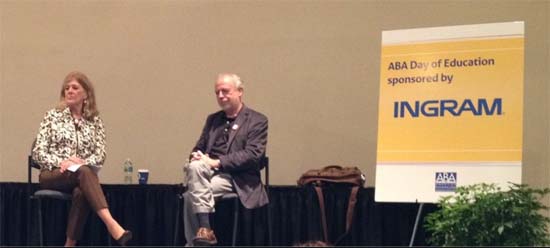

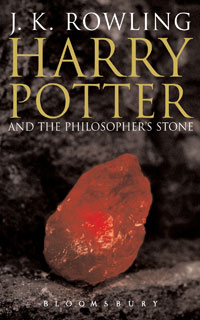 Why didn’t these capable titans refer to readers by their rightful name? Perhaps talking about readers in human terms interfered with business operations. Freidman said, “We want to get to them quicker, more efficiently.” This would be done by “marketing extensively.” I didn’t know whether to be more alarmed by Friedman’s crude reliance on adverbs or her suggestion that passionate readers are malleable cyborgs.
Why didn’t these capable titans refer to readers by their rightful name? Perhaps talking about readers in human terms interfered with business operations. Freidman said, “We want to get to them quicker, more efficiently.” This would be done by “marketing extensively.” I didn’t know whether to be more alarmed by Friedman’s crude reliance on adverbs or her suggestion that passionate readers are malleable cyborgs.